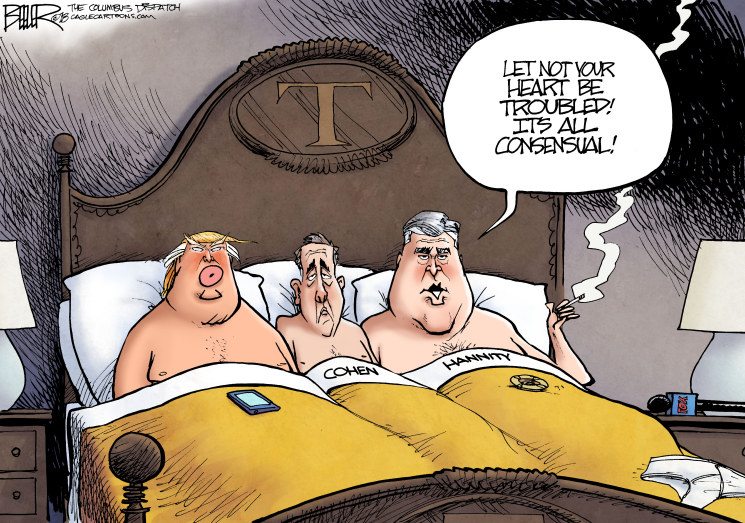The Alternate States of America

We, in America, have been living in alternate states of reality for quite some time. They are neither red or blue. They are states of consciousness and perception.
New borders and boundaries have been erected to divide us. They’re often alphanumeric in construction; rising and falling with every stroke of a keyboard, button-push of a remote control, or swipe of a touchscreen. They open the gates to awareness, while simultaneously shutting the door on reason.
How we perceive our world is increasingly defined by the cable channels we view, the radio stations we listen to, the websites we surf, and to a lesser extent – sadly – the newspapers we read.
For as long as the printing press has existed, journalists have expressed differing points-of-view. In their earliest incarnations, books, pamphlets, and newspapers were put out by individuals who voiced their opinions in hopes of moving their readers; to convince them to take a similar stance even more than they factually covered events. The “news” was an extension of those who had the means to publish.
Newspapers historically followed this pattern in cities and towns, large and small. People “took” papers that reflected their personal values and worldview. In many communities, multiple print news outlets existed, whose coverage and advertising targeted those with similar sensibilities. Broadsheets appealed to traditional conservatives, some to more progressive audiences. Tabloids often spoke to the working-class and, sometimes, to immigrants or the radical fringe.
Reporters who wrote for those publications covered the same stories, fought for the same scoops, and spun their coverage based primarily upon those owners and publishers hoped to influence. The papers were run by upstanding citizens and civic leaders. They wielded considerable power but were not demagogues. Most sought to open readers’ eyes to new realities and societal changes. Few propagated lies and deception. If only this were true today.
Demagoguery does exist, and it is motivated by both profit and perspective, no matter how distorted the prospect may be. Major media conglomerates, whose leaders have included families with names like Murdoch, Sinclair, and Breitbart, often host those who are not beyond expressing outright lies. They also accuse other mainstream outlets of purveying “fake news,” no matter how well-substantiated the facts may be.
Brakes are rarely applied to the editorial ramblings of many of these news outlets. It’s even worse online where bloggers, creators of what are truly “fake news” sites, as well as some that are more legitimate, preach to choirs comprised of the angry and disaffected; giving voice to extremist positions. And let’s not forget those sites under the control of outside influencers whose sole intent is to foster discord among us.
It would be disingenuous to avoid examining the voices of other cable networks, those whose ownership is associated with corporate logos more so than surnames; the usual suspects, like MSNBC and CNN, that are targeted by right-leaning ranters. Sorry to disillusion their critics, but what is seen interspersed with opinion on those channels is news; based on hard, well-documented facts. And when mistakes or errors in judgment occur (and they sometimes do), those responsible are subjected to intense scrutiny; with public apologies, corrections, or retractions being made.
While some mainstream conservatives may cringe when extremist or ignorant sentiments are expressed by friends and colleagues, by the president, or on the channels and sites that serve as their platforms, they are loathe to publicly denounce them. Self-preservation and careerism is clearly more important than veracity.
Ongoing cries of “fake news” and the constant repetition of lies and half-truths only strengthen the borders and boundaries that divide us. Those on both sides oftentimes remain cloistered, living in separate states of reality to the detriment of us all.
In the days before cable news and online websites ran amok, legendary journalist Walter Cronkite ended his television broadcast each weekday evening with the phrase “And that’s they way it is… “And we believed him. These days, many of us don’t really know who or what to believe. That’s just the way it is.
–
Copyright 2018 Blair Bess distributed exclusively by Cagle Cartoons newspaper syndicate.
Blair Bess is a Los Angeles-based television writer, producer, and columnist. He edits the online blog Soaggragated.com, and can be reached at [email protected].

